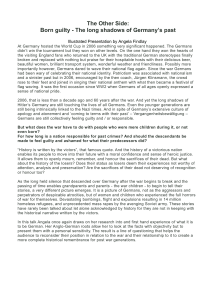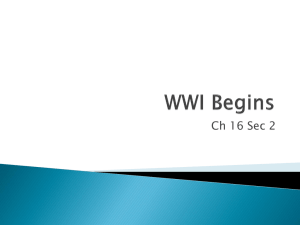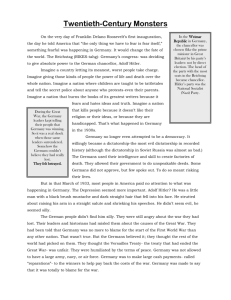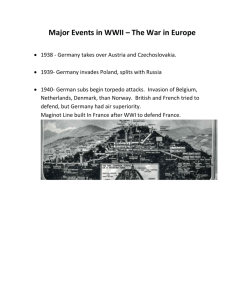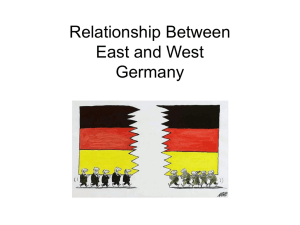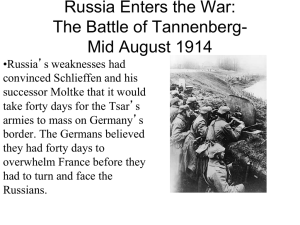Links are at www.DaveObee.com
advertisement
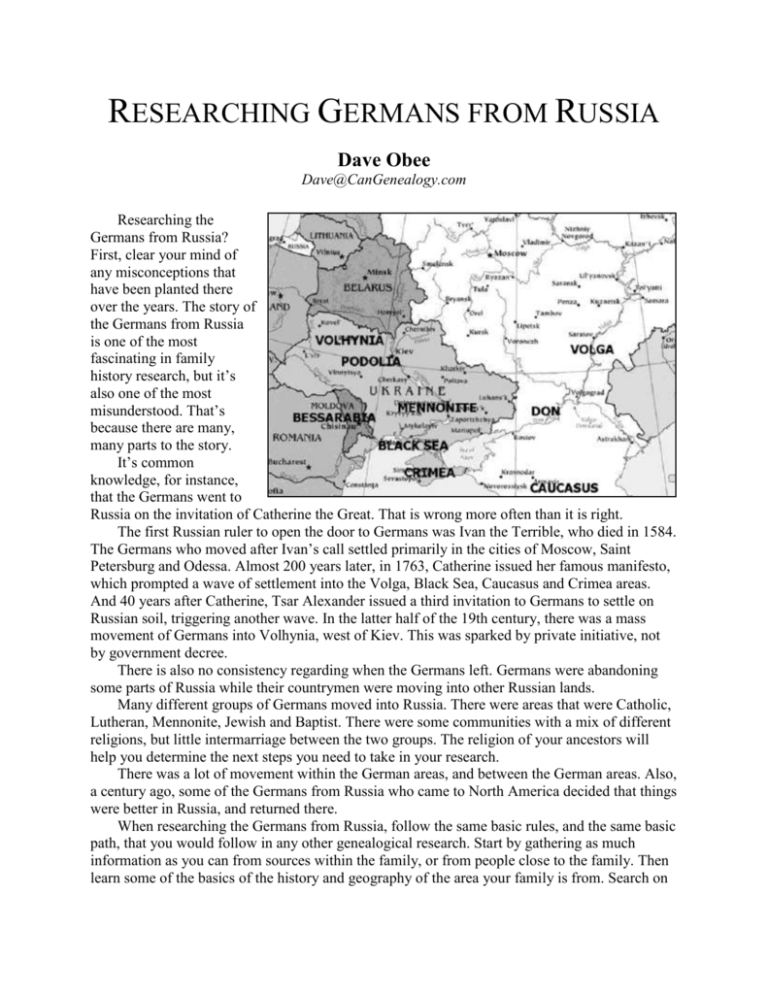
RESEARCHING GERMANS FROM RUSSIA Dave Obee Dave@CanGenealogy.com Researching the Germans from Russia? First, clear your mind of any misconceptions that have been planted there over the years. The story of the Germans from Russia is one of the most fascinating in family history research, but it’s also one of the most misunderstood. That’s because there are many, many parts to the story. It’s common knowledge, for instance, that the Germans went to Russia on the invitation of Catherine the Great. That is wrong more often than it is right. The first Russian ruler to open the door to Germans was Ivan the Terrible, who died in 1584. The Germans who moved after Ivan’s call settled primarily in the cities of Moscow, Saint Petersburg and Odessa. Almost 200 years later, in 1763, Catherine issued her famous manifesto, which prompted a wave of settlement into the Volga, Black Sea, Caucasus and Crimea areas. And 40 years after Catherine, Tsar Alexander issued a third invitation to Germans to settle on Russian soil, triggering another wave. In the latter half of the 19th century, there was a mass movement of Germans into Volhynia, west of Kiev. This was sparked by private initiative, not by government decree. There is also no consistency regarding when the Germans left. Germans were abandoning some parts of Russia while their countrymen were moving into other Russian lands. Many different groups of Germans moved into Russia. There were areas that were Catholic, Lutheran, Mennonite, Jewish and Baptist. There were some communities with a mix of different religions, but little intermarriage between the two groups. The religion of your ancestors will help you determine the next steps you need to take in your research. There was a lot of movement within the German areas, and between the German areas. Also, a century ago, some of the Germans from Russia who came to North America decided that things were better in Russia, and returned there. When researching the Germans from Russia, follow the same basic rules, and the same basic path, that you would follow in any other genealogical research. Start by gathering as much information as you can from sources within the family, or from people close to the family. Then learn some of the basics of the history and geography of the area your family is from. Search on the Internet for more information, and try to make contact with other people working on the same lines or in the same area. Seek out resources in your immediate area, including records from churches your ancestors or relatives may have attended. Use the local Family History Library, bringing in any microfilms that might be of help to your research. Try other libraries and archives, including the national archives. Make contact with researchers overseas, the people who might be able to help you get more information. If possible, head overseas yourself to tackle the local resources and walk the streets where your ancestors lived. And pick up a basic knowledge of the languages you'll be facing. Possible sources: • Relatives, and friends and neighbors of relatives. • Newspaper obituaries. • Passenger lists. • Naturalization records. • Border crossing records. • Canadian registration program, 1940. • Census. • Death indexes and probate records. • Social Security Death Index. • Phone directories on the Internet. • Deutsches Ausland Institut collection. • St. Petersburg Lutheran records. • German federal archives. • German genealogical office in Leipzig. • Einwandererzentralstelle records. • Church publications. • Internet mailing lists. • ODESSA on-line library, odessa3.org • Federation of East European Family History Societies, feefhs.org • American Historical Society of Germans from Russia, ahsgr.org • Germans from Russia Heritage Society, www.grhs.org • Eastern European Genealogical Society, eegsociety.org • Society for German Genealogy of Eastern Europe, sggee.org • Mennonite Historical Society of B.C., mhsbc.com • Germans from Russia Heritage Collection, lib.ndsu.nodak.edu/gerrus/ • Take a deep breath, and go there. You can: – Walk the streets your ancestors walked – Search through the underbrush for headstones – Eat traditional foods, drink the water, get sick – Visit archives and ZAGS offices LINKS ARE AT WWW.DAVEOBEE.COM © Copyright Dave Obee 2015
